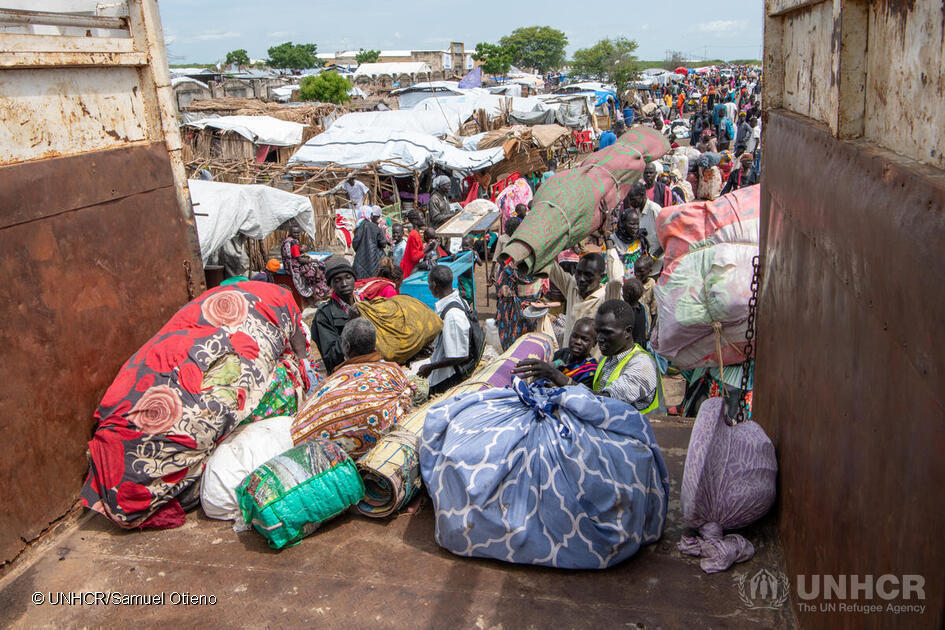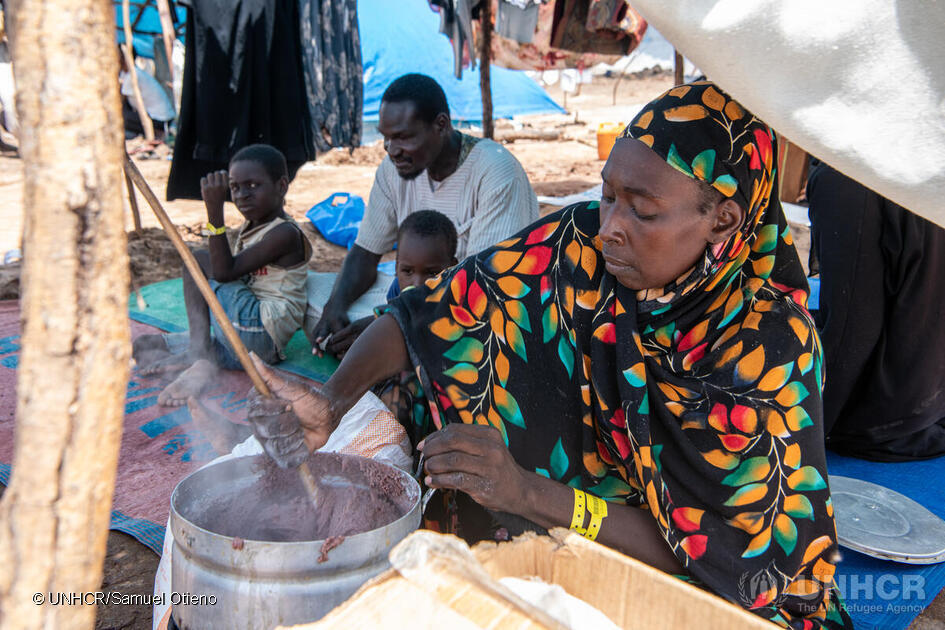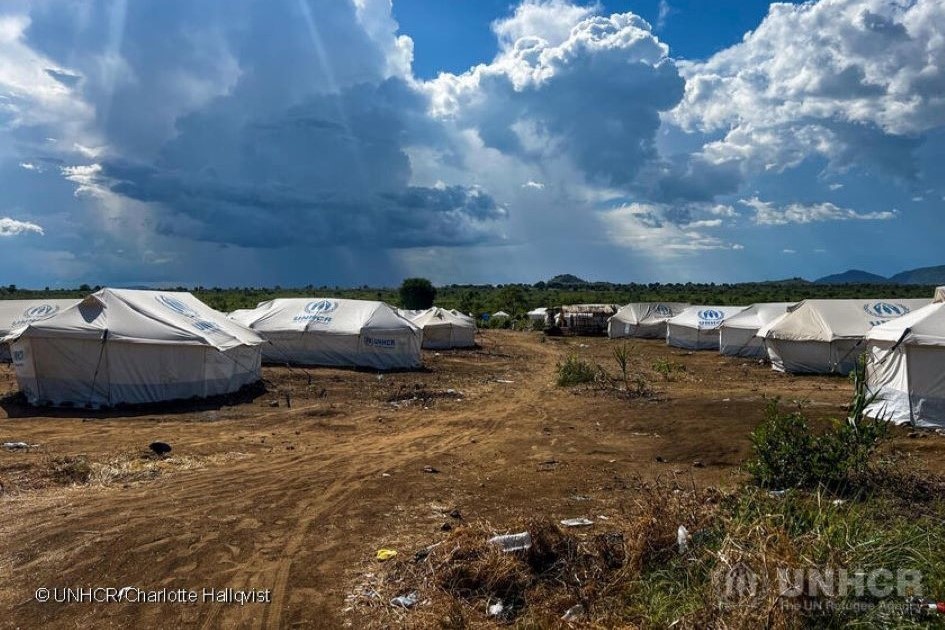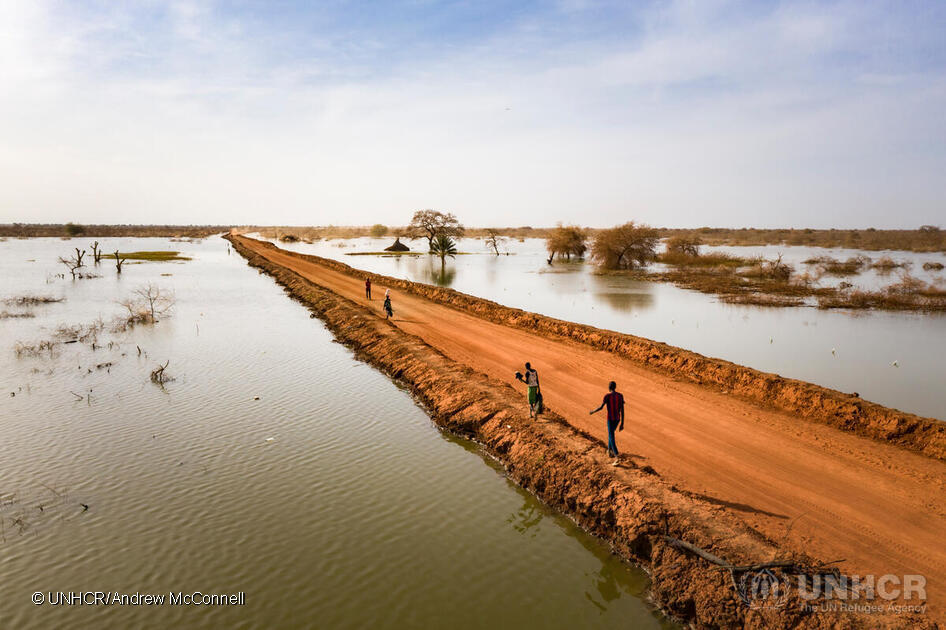More than 200,000 South Sudanese refugees have fled conflict in Sudan and returned to South Sudan, but many find themselves stranded in remote border areas. Swedish contributions to UNHCR are vital to continuing the life-saving support in the region.

Heavy rains have disrupted normal life at the UNHCR transit centre in Renk, Upper Nile State, South Sudan.
South Sudan is grappling with one of Africa’s largest displacement crises, exacerbated by the recent conflict in Sudan. The region already faced significant challenges, with an estimated 9.4 million people in need of humanitarian aid in 2023. Since the outbreak of fighting in Sudan in mid-April this year, more than five million have fled, with more than 290,000 individuals going to South Sudan to seek safety.
South Sudan has dealt with a decade of conflict and continues to grapple with sporadic violence, chronic food insecurity, and, during the rainy season, the devastating impact of flooding. This has led to an estimated 2.2 million people displaced internally and more than 2.3 million people having fled to neighboring countries, such as Sudan. However, many South Sudanese refugees residing in Sudan are returning to their home country to escape the ongoing violence.
Refugees, returnees, and third-country nationals arriving at the border in the past months have endured arduous journeys marked by extortion, interrogation, and harassment. Flooding due to the rainy season and climate change has compounded these challenges. Most of the arrivals are women and children, who face increased risks of discrimination and violence when forced to flee.
South Sudan has welcomed people fleeing Sudan despite the worsening humanitarian situation in the country, but the increased needs mean funding is imperative.
Sweden is one of the top contributors to UNHCR’s response in South Sudan, having contributed USD 1.4 million in 2023. This funding enables UNHCR to continue providing life-saving assistance to refugees, refugee returnees, internally displaced people, and third-country nationals in South Sudan.

The large influx of arrivals at the Sudan-South Sudan border has caused issues of onward transportation. UNHCR and IOM have provided temporary transportation and transit centers; since the start of the crisis, over 137,000 people have been supported with onward transportation. In addition, over 16,600 people have been biometrically registered.

Due to the increase of arrivals, food security has exacerbated. This has serious implications on the health of children. Over 1,760 children under five have been screened for malnutrition and UNHCR, together with partners handed out emergency food to meet the most immediate nutrition needs of new arrivals.

To ensure a minimum standard of living for refugees, returnees, and third-party nationals, UNHCR is providing arrivals with core relief items, such as blankets, mats, and buckets. Emergency medical treatment is also provided, as well as sanitary items and latrines.

Due to the high number of women and children arriving in South Sudan, UNHCR, together with government counterparts, has established working groups on child protection and gender-based violence. Measures to protect women and children include gender-sensitive communal shelter, toilets, and bathing facilities, as well as sufficient lighting.

More than 290,000 arrivals over the past five months have led to a need to renovate available emergency shelter and to add more. UNHCR, with support from partners, is expanding the emergency communal shelters, with the structural framework for 69 completed and continuing with 105 more. 30 family tents were set up for vulnerable families who were sleeping out in the open.

Flooding, due to climate change and the rainy season, has destroyed several roads to remote transit centers. Now, the major access route between southern parts and the northern border has been restored, allowing urgent humanitarian aid, from UNHCR among others, to reach the transit centers.
Sweden as a donor to UNHCR:
Sweden is UNHCR’s largest provider of multi-year unearmarked funding, which enables UNHCR to reach remote areas and to scale up the response in protracted crises like South Sudan. As of today, Sweden has contributed USD 118.9 million to UNHCR in 2023, of which USD 69 million, equivalent of 59%, is unearmarked. Sweden is also the fourth largest donor to UNHCR’s operations in South Sudan in 2023, having contributed USD 1.4 million. In 2022, Sweden contributed in total USD 145.7 million, of which USD 3.7 million went to the situation in South Sudan, and USD 99.3 million was unearmarked.
Share on Facebook Share on Twitter